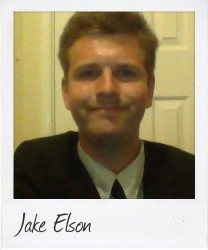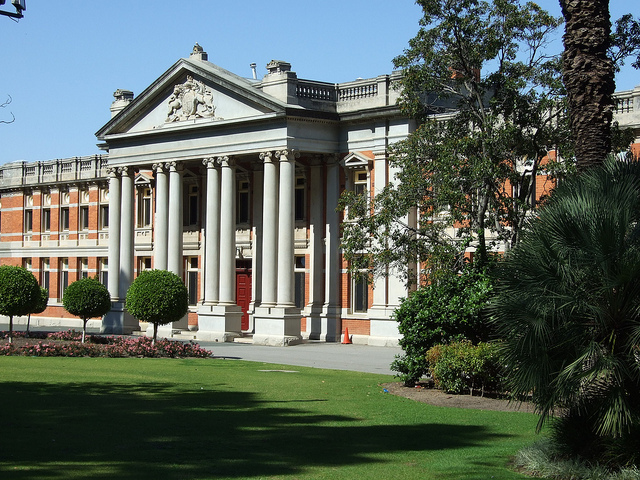"If you know your history"
November 9th, 2014 A critical view of history is vital to identity, writes Jake Elson, 20, a Commonwealth Correspondent from Bunbury in Australia, who laments that Western Australians know too little about their complex past.
A critical view of history is vital to identity, writes Jake Elson, 20, a Commonwealth Correspondent from Bunbury in Australia, who laments that Western Australians know too little about their complex past.
There is a famous line from Bob Marley’s “Buffalo Soldier”: ‘If you know your history, then you would know where you’re coming from. Then you wouldn’t have to ask me, who the heck I think I am!” Unfortunately, here in Western Australia, there is this problem. Simply, we don’t know our history.
History has two purposes. First of all, it is meant to inspire. Regional and local history inspires a feeling of patriotism, not necessarily one of superiority over others but more a love of home and an identity. Second of all, it allows for criticism and re-evaluation of what actually happened and the motives behind the moments. Both are intertwining. Inspiration without critical analysis leads to blind nationalism. Critical analysis without inspiration leads to defeatism without direction toward the light.
So why exactly do most Western Australians not know their history? The truth is, it’s complicated without a simple answer. Perhaps it’s apathy and a general lack of interest. Most people would rather be at the footy than go on history tours of their home-town. Perhaps it’s treated of little importance – a desert outpost of the British Empire that turned into an ignored state of Australia seems of small significance and boring compared to the Eureka Rebellion and the Premiership of Jack Lang.
Let’s face it, the media and the government aren’t all that enthusiastic about state and colonial history. It’s not as amped up as national history is. Or perhaps it’s the way history in general is taught. Indeed, the Australian history syllabus for Years 11 and 12 focuses on eastern history. Sure we know about the effects of the great depression and the resulting dismissal of New South Wales Premier Jack Lang, but what are largely forgotten are the effects it had in Western Australia.
In fact, many people, even Western Australians, would be shocked to hear that we actually had a referendum to secede – the only state in Australian history to do so – and 68 per cent said yes. Much like the sacking of the Lang government in New South Wales, it was a response to the effects of the depression. Many thought that Canberra failed to look after the interests of “The West”, and the move to leave the federation and become a British Dominion resulted in the successful referendum.
It however remains un-enacted, a piece of un-ratified parchment in the Parliamentary files. Why? Westminster at the time felt that it was the responsibility of Australia and not Britain to determine a state’s place (a defence that would no longer be accepted – look at the Kosovo and South Sudan precedents). It was thought of not as treason to Australia but to the Crown, and was vehemently shouted down by secession delegates.
Western Australians are also oblivious to the controversy over the original Western Australian Referendum. History textbooks will simply read “Western Australia voted yes to federation”. The reasons for the controversy would be best left for another day.
Indeed, ill-feeling towards Canberra still lingers in Western Australia. Yet most Western Australians don’t know why. Anger toward Canberra is more often a result of a budget slight, GST cuts and geography than historical antipathy. Indeed, if you were to take a random sample of people on Murray Street in Perth, the vast majority would look at you funny if you told them there was a referendum in 1933 to leave the Federation. They would also tell you that leaving the Federation is inconceivable. However, if Western Australians were made aware of their history, that would be different. Look at Scotland. As a nation well versed in its history; independence wasn’t a laughable idea. Indeed, it failed only because of financial reasons.
If Western Australians were to be made aware of their own history, it would lead to a patriotic revival. However we should analyse what happened then, and how it affects us now. We have been in the Federation for 113 years. Has it really been all that bad? Was the secession referendum just another reaction to the great depression, especially considering the Conservative government was also voted out the same day of the referendum, and replaced with a more Canberra-friendly Labour government? And has most of the chatter of discontent been about minor things such as the GST?
History defines who we are, and Western Australia’s history is colourful. It needs more attention from its own. Rather than looking at others for inspiration, Western Australia only needs to look at its own backyard. If we forget our own, then what’s the point of complaining about perceived injustice from Canberra?
photo credit: eGuide Travel via photopin cc
…………………………………………………………………………………………………………………
About me:
I am a history buff, but also am into soccer. I referee soccer, and would like to go FIFA one day. I’m currently studying politics and international relations at Edith Cowan University. My aim is to become a police officer in Western Australia, and I would like to be Prime Minister one day.
I am a Conservative and a Monarchist, and believe in the role of the Commonwealth as a tool for good.
…………………………………………………………………………………………………………………
Opinions expressed in this article are those of the author and do not necessarily represent the views of the Commonwealth Youth Programme. Articles are published in a spirit of dialogue, respect and understanding. If you disagree, why not submit a response?
To learn more about becoming a Commonwealth Correspondent please visit: http://www.yourcommonwealth.org/submit-articles/commonwealthcorrespondents/
…………………………………………………………………………………………………………………




